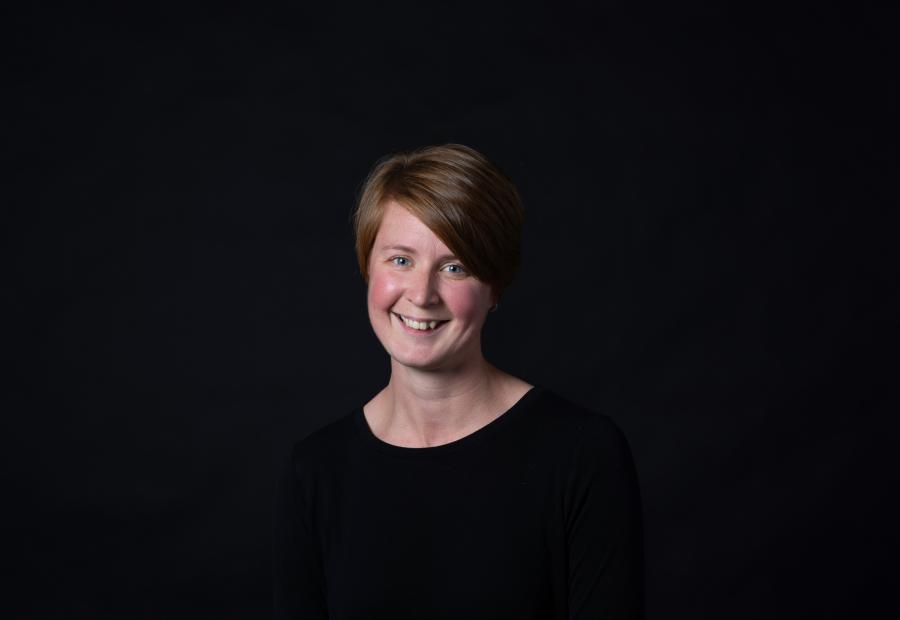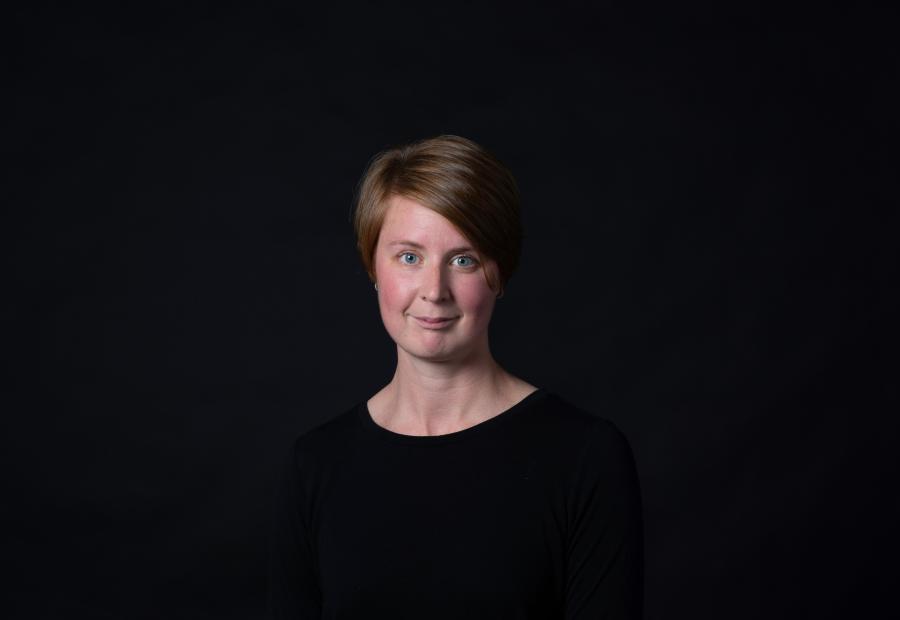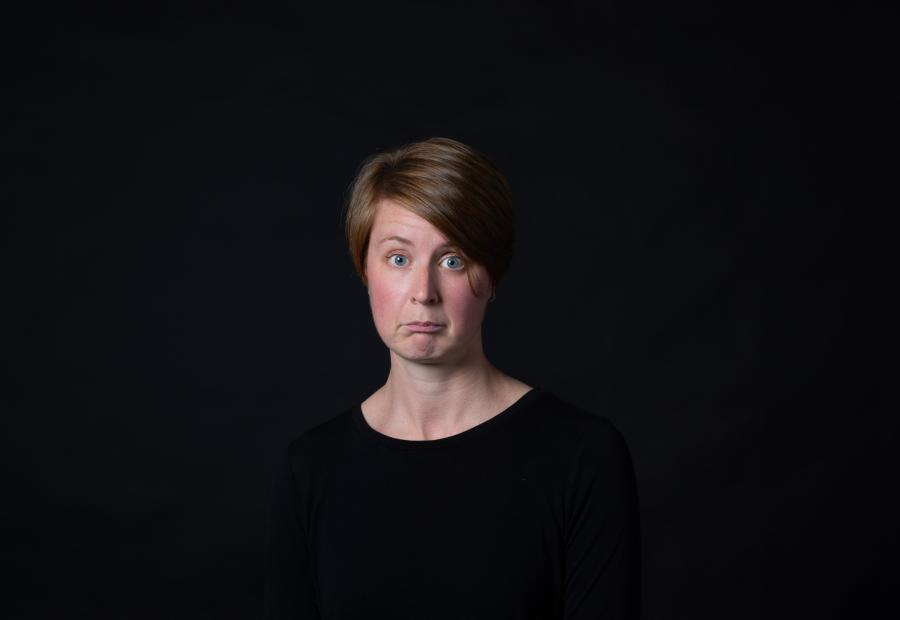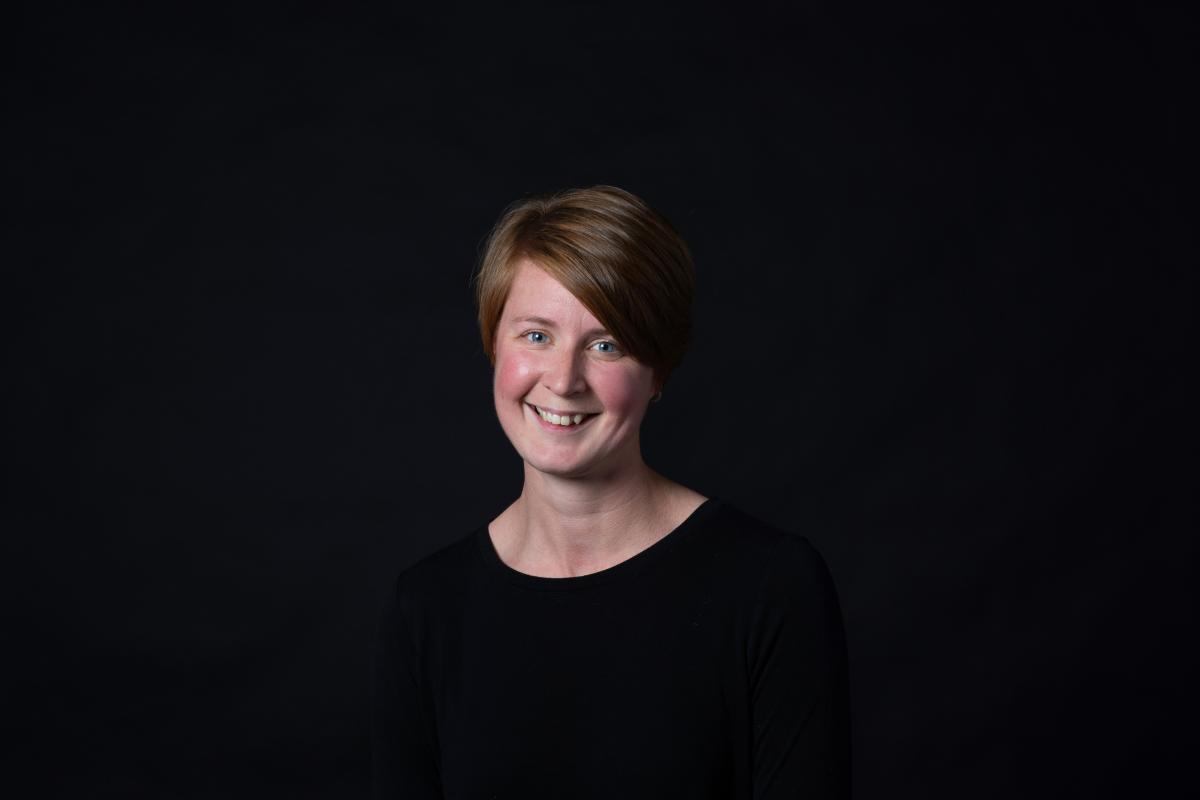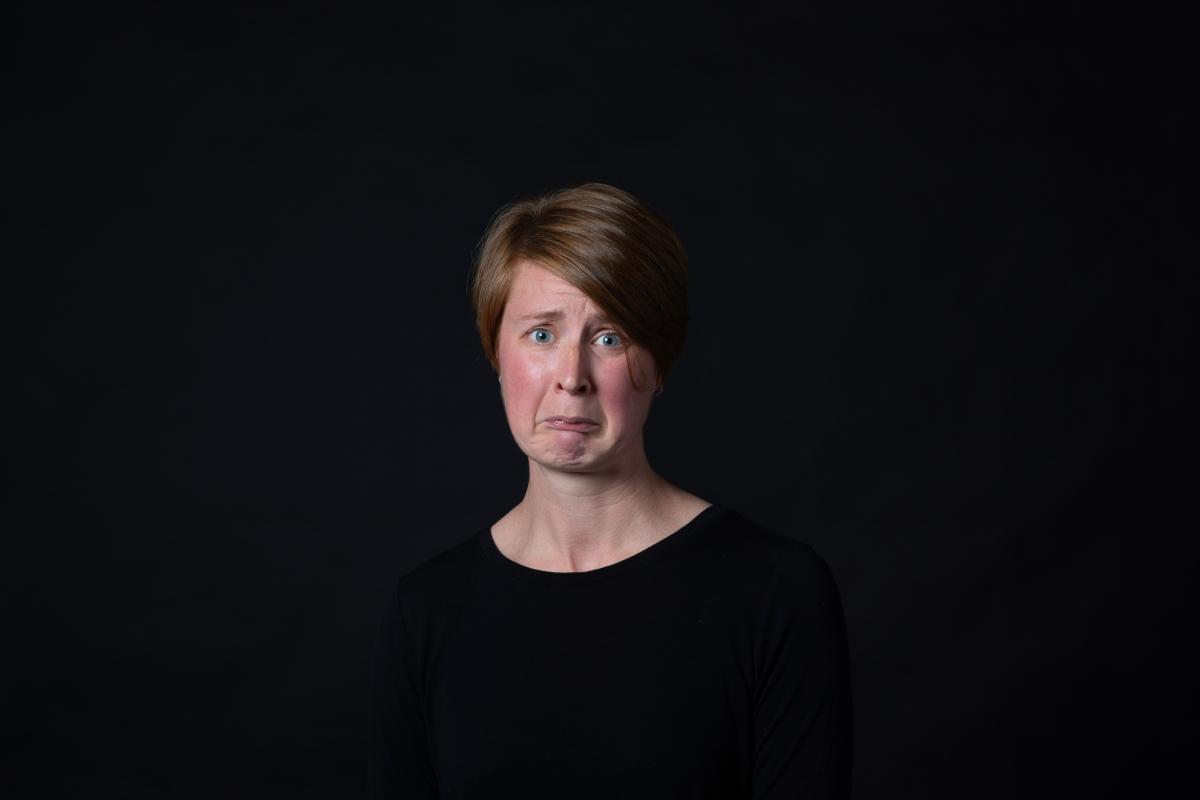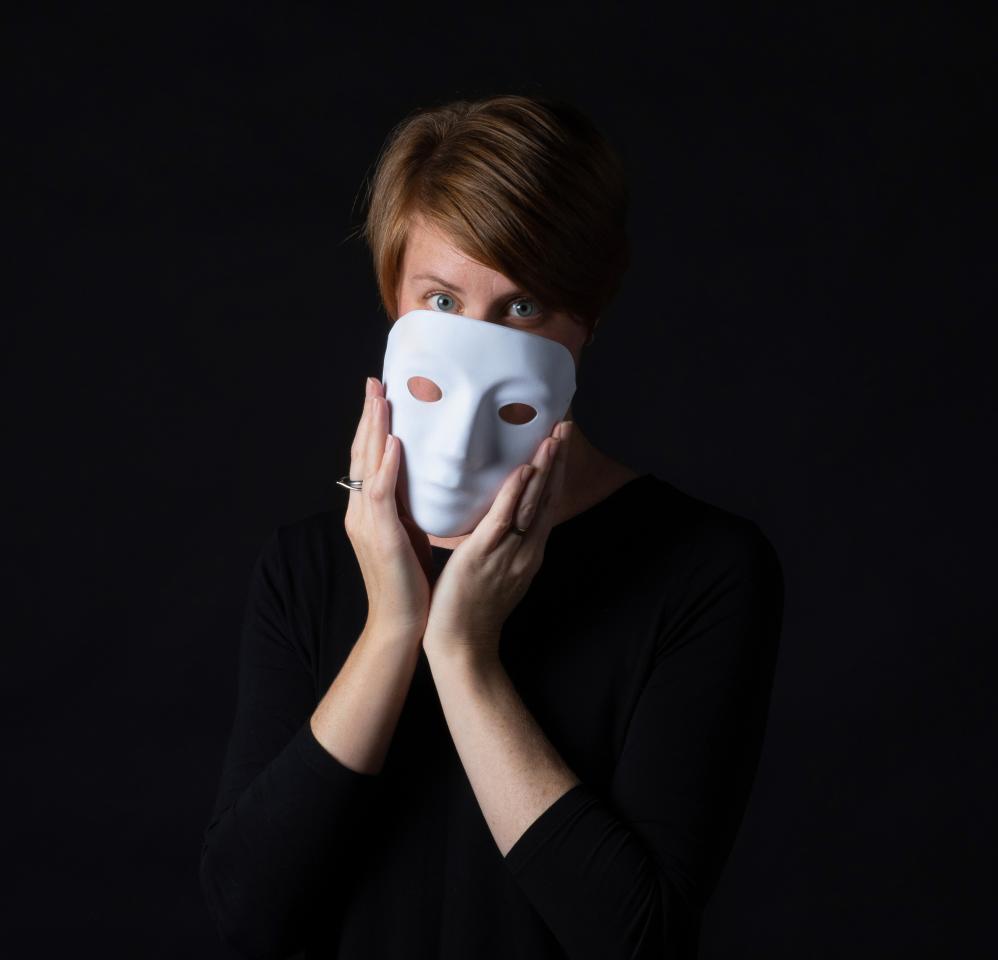
Mask of deception
Dr. Leanne ten Brinke and her students are studying liars, truth-tellers, and everything in between.
Dr. Leanne ten Brinke is a psychology professor at UBC Okanagan. Photos by Darren Hull.
“Please, help me find her!” pleads a man in front of dozens of news cameras. Closely watching the footage on her screen, Dr. Leanne ten Brinke (PhD'12) quickly pauses it as the man looks sadly at the cameras.
“When we feel genuinely sad, our eyebrows naturally pull upward and together. But when trying to fake the expression, it’s hard to activate the same muscles voluntarily. It’s hard to bring your eyebrows upward and together if you’re not actually sad, so that action tends to be missing in deception,” she explains. “Even if we don’t suspect a ‘pleader’ on TV is lying, these facial cues lead us to experience less sympathy for that person.”
Exploring and understanding behavioural cues of deception is just one of the many facets of ongoing research in Dr. ten Brinke’s Truth and Trust Lab at UBCO’s Irving K. Barber Faculty of Arts and Social Sciences. There, Dr. ten Brinke — along with her undergraduate and graduate students — explores the concepts of trust, deception, affiliation, power, and influence in real-world applications.
“Society is built on trust — whether it’s trusting other drivers to stay on their side of the road or trusting our friends to keep our conversations private. Particularly when trying to influence others, trust is critical,” Dr. ten Brinke explains. “Trust is a social norm, but unfortunately research has found that trust in society is decreasing.”
For Dr. ten Brinke and her students, these far-reaching implications make it all the more relevant to study truth and trust — from the leaders we elect and the medical advice we follow, to the friends we keep.
Deception in daily life
Deception, like trust, has developed as a fundamental aspect of human social interaction, making it critical to research and understand.
For Dr. ten Brinke, that means pursuing some unique avenues of study. “We’re studying the broader physiological responses that occur when people observe deception and have found that people have physiological threat responses when watching liars versus truth-tellers. That means people start sweating more and their blood rushes away from peripheral parts of their body — like their hands —toward their core.”
She says the research project was risky, “because no one had ever done anything like that before,” but at the same time it was empowering. “It turned out we have different physiological responses to lies and truths, which I thought was fascinating.
“We’re expanding on those findings to understand how people react to lies in daily life, and how we might have natural mechanisms that prevent us from sharing too much information or getting too close to deceivers — even if we aren’t suspicious and trying to detect lies in everyone we meet.”
Chloe Kam, an undergraduate honours psychology student, was already a “true crime junkie” when she met Dr. ten Brinke in an honours prep course. “I once took an abnormal criminals psychology course and I loved learning why people do what they do — especially criminals. I think my honours thesis, which focuses on how suspicion affects sympathy ratings, ties together both mine and Dr. ten Brinke’s interest in deception quite nicely.”
Kam’s research builds on one of Dr. ten Brinke’s previous studies that focused on “pleaders” shown on TV and their behavioural cues of deception. In Kam’s study, participants were asked to watch a series of videos with individuals making public pleas for the safe return of missing loved ones. The study participants were then asked to rate how much sympathy they felt for each pleader. For some participants, Kam planted a single seed of suspicion by suggesting that the pleaders may or may not be telling the truth; she expected this to impact the sympathy ratings.
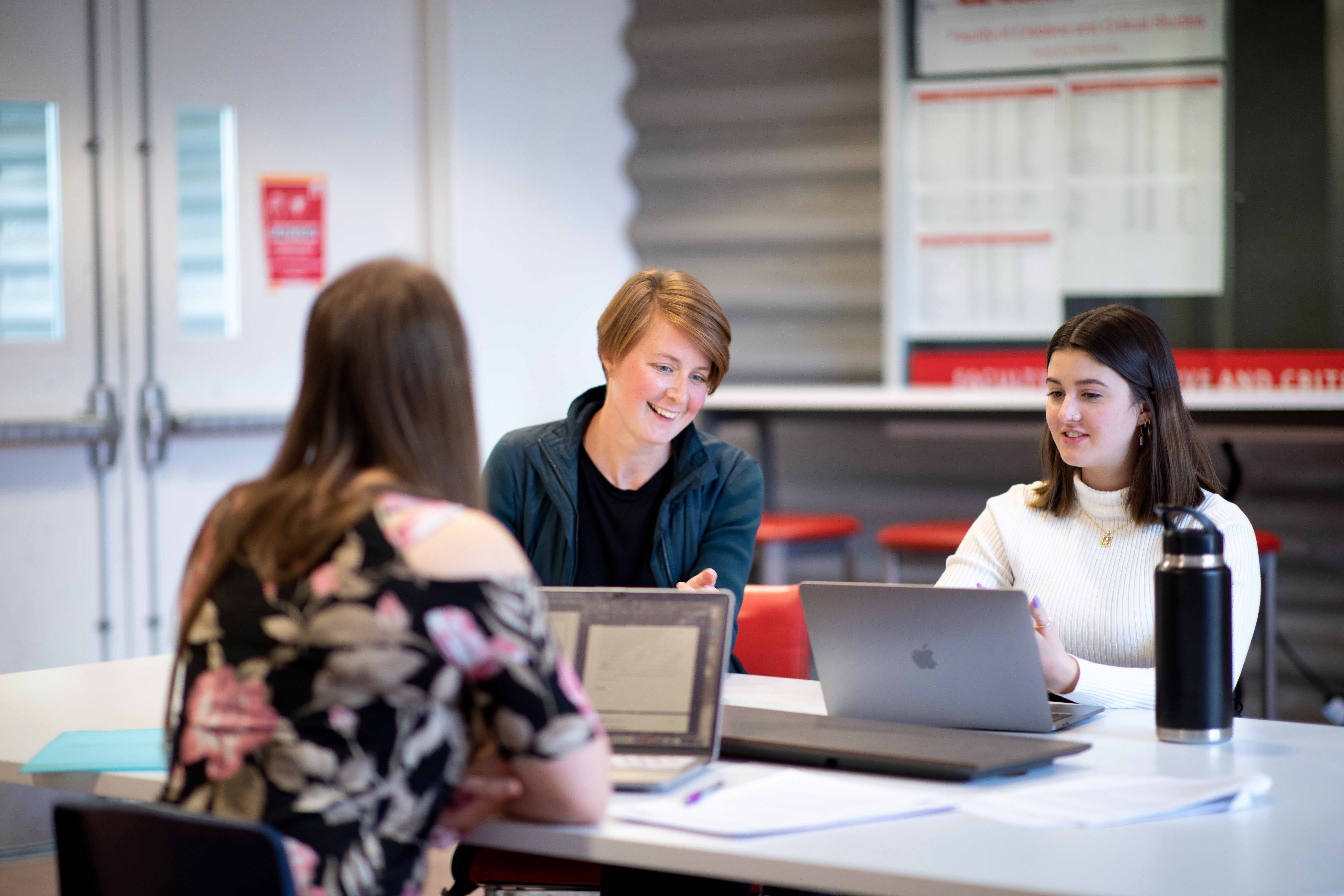
Dr. ten Brinke and undergraduate student Chloe Kam
Although she’s an undergraduate honours student, Kam is also Dr. ten Brinke’s research and teaching assistant. Kam recognizes that her research opportunities could only be provided by a university like UBCO.
“Compared to my friends, I’m doing more hands-on work and research. Plus, the professors are so open and encouraging — they want to help you succeed in all aspects. I love the personal aspect of UBCO and how much smaller the campus is compared to other large schools,” Kam explains. “I’m gaining so much valuable work and research experience alongside Dr. ten Brinke, which I know can be hard to come by as an undergraduate student.
“Also, seeing the inner workings of studies has helped me decide that I want to pursue my master’s and PhD. It’s way more work than I anticipated but having been behind-the-scenes on previous research, I know it’s something I want to do.”
Changing perceptions about psychopathy
Jayme Stewart, Dr. ten Brinke’s graduate student in clinical psychology, is currently researching deception and psychopathy, but her research subjects aren’t who you might think. “When I say I’m interested in studying psychopaths, people immediately think I deal with serial killers. But these traits are common in corporate offices too — particularly among those inhabiting the most powerful roles.”
Psychopathy is a disorder marked by dishonesty, arrogance, low remorse, and poor control of one’s behaviour. While all psychopaths share the same negative traits, successful psychopaths are less irresponsible, impulsive, and negligent; they are able to avoid violence and instead use their psychopathic traits to win power and prestige.
Stewart is particularly interested in changing misperceptions about psychopathy, while also helping those impacted by violence regain their sense of empowerment and autonomy.
“People with psychopathic personality traits are more likely to engage in crime, violence, and re-offend, but they are also more likely to be released on early probation — in part because these individuals are adept at manipulating and deceiving others,” explains Stewart. “They are a high-risk, unique group of individuals who are considered social predators; they prey on people they think can be taken advantage of.”
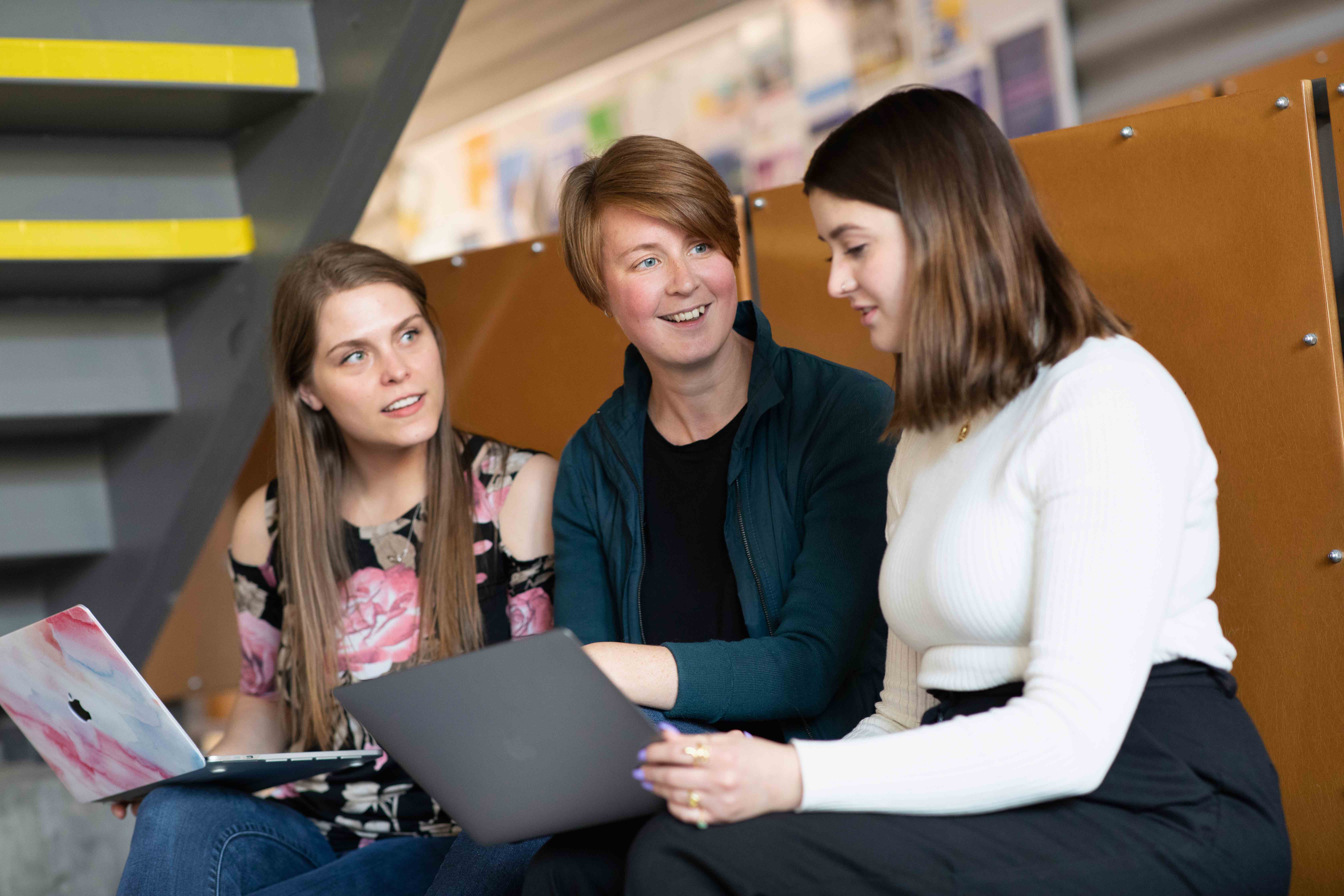
Graduate student Jayme Stewart with Dr. ten Brinke and Chloe Kam
For Stewart, researching why certain people are victimized is crucial to understanding how to prevent victimization and vulnerability in the first place. “The biggest thing in preventing victimization is stopping the potential perpetrator from engaging in it. If that means being able to identify high-risk individuals, that’s important. It could be people with psychopathic traits, or perhaps those who lack skills in communication and assertiveness.”
For many, being victimized is quite traumatic and can create a sense of helplessness, says Stewart. Survivors often feel unable to control their environment or what happens to them, and gender dynamics also come into play. “It’s important to rebuild that sense of empowerment and confidence, while also helping to reshape what we’ve been gender-normed to believe about the appropriateness of female versus male assertiveness.
“Through my research, I ultimately want to give survivors of victimization a sense of autonomy and that they can control their future.”
As they develop better methods of identifying people telling the truth in the media, at work, or even on the street, Dr. ten Brinke and her team are aiming to help protect the vulnerable within our society.

























